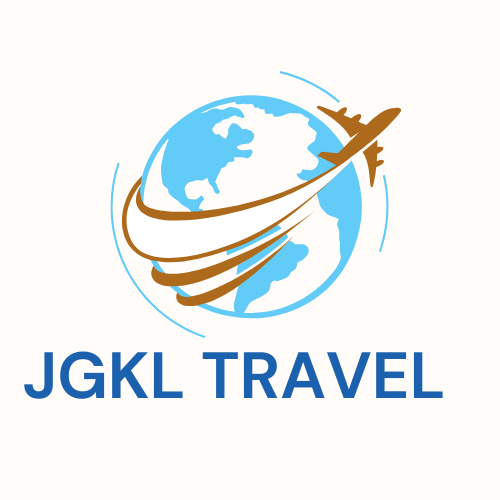Germany, the economic powerhouse of Europe, is currently experiencing a significant labor shortage across multiple sectors. From skilled trades to IT and healthcare, companies are actively recruiting foreign professionals to fill key roles — and many are ready to offer visa sponsorship to qualified candidates from abroad. If you’re looking to work in Europe, this is your sign to explore high-demand jobs in Germany with visa sponsorship.
Whether you’re in Africa, Asia, Eastern Europe, or Latin America, this post outlines in-demand professions, application steps, and resources to help you land a sponsored job and legally work in Germany.
Why Work in Germany?
Germany is not only one of the largest economies in the world but also offers excellent work conditions and benefits for foreign professionals:
- Competitive salaries with employee benefits
- Stable job market and work-life balance
- Pathways to permanent residency (Niederlassungserlaubnis)
- World-class healthcare and education systems
- Opportunity to bring family members under the family reunification visa
A visa sponsorship job means that a German employer is willing to support your work visa application, providing the necessary documentation for you to live and work legally in the country. Germany’s Skilled Worker Immigration Act and EU Blue Card pathways make it easier for non-EU nationals to fill positions in shortage occupations.
Step 1: Identify Shortage Occupations
Germany has officially published a list of occupations that are currently experiencing a labor shortage. These include both academic professions and vocational trades.
🔎 View the official list of shortage occupations:
https://www.make-it-in-germany.com/en/working-in-germany/job-list
Top High-Demand Jobs in Germany (2025):
| Occupation | Niche/Field |
|---|---|
| Nurses & Elderly Caregivers | Healthcare |
| Software Developers | IT |
| Electrical Engineers | Engineering |
| Welders & Metal Workers | Skilled Trades |
| Truck Drivers & Delivery Workers | Logistics |
| Carpenters & Construction Workers | Construction |
| Restaurant Chefs & Hospitality Workers | Hospitality |
| Mechatronics Technicians | Manufacturing |
| IT Security Specialists | Cybersecurity |
| Early Childhood Educators | Education |
Step 2: Prepare a Germany-Compatible CV
Your resume and cover letter must follow German standards:
- CV should be structured, concise, and reverse chronological
- Include a professional photo (common in Germany)
- Mention language proficiency (especially German or English)
- Always submit a Motivationsschreiben (letter of motivation)
Free CV templates:
Use verified job portals that cater to international applicants and feature employers ready to sponsor visas:
Search Tips:
- Use keywords like “visa sponsorship,” “English speaking jobs,” or “Skilled Worker (Fachkräfte)”
- Filter by sectors like “IT,” “Healthcare,” “Engineering,” and “Handwerk” (trades)
Step 4: Apply for Jobs & Get a Contract
Once shortlisted, the company will issue a job contract or employment offer. This is necessary for your visa application.
Tip: Some companies assist with visa paperwork, language support, and even relocation benefits. Always ask during the interview process.
Step 5: Apply for a German Work Visa
There are two common routes for non-EU nationals:
A. Skilled Worker Visa
For those with vocational or academic qualifications recognized in Germany.
👉 More info: https://www.germany-visa.org/skilled-worker-visa/
B. EU Blue Card
For university graduates with a job offer of at least €43,800/year (or €39,682 for shortage professions).
👉 More info: https://www.bamf.de/EN/Startseite/startseite_node.html
Documents Needed:
- Valid passport
- Employment contract
- Proof of qualifications
- Health insurance
- Proof of accommodation in Germany
- Recognized degree or vocational training proof
- Language proficiency (German A2–B1 for some jobs)
Processing time: 6–12 weeks (depending on your country)
| Company | Industry |
|---|---|
| Siemens AG | Engineering/Manufacturing |
| SAP | IT/Software |
| Bosch | Automotive/Tech |
| Deutsche Post DHL | Logistics |
| Volkswagen Group | Automotive |
| Bayer | Pharmaceuticals |
| BMW Group | Manufacturing |
| Charité – Universitätsmedizin Berlin | Healthcare |
| Deutsche Bahn | Transport |
| Infineon Technologies | Electronics/Semiconductors |
Use the Make it in Germany search engine to verify if a company is officially recognized and allowed to sponsor foreign workers.
Language Requirements
- For most tech and multinational jobs, English is sufficient.
- For healthcare, education, trades, basic to intermediate German (A2–B1) is often mandatory.
- Free German learning platforms:
Can I Bring My Family?
Yes! Germany allows you to bring your spouse and children under the Family Reunification Visa. Spouses may also work full-time.
Path to Permanent Residency
You can apply for permanent residency (Niederlassungserlaubnis) after:
- 33 months of employment with an EU Blue Card (or 21 months with B1-level German)
- 5 years with a Skilled Worker visa and social contributions
Key Takeaways
- Germany is facing labor shortages and is actively hiring foreign workers.
- In-demand sectors include healthcare, IT, engineering, and skilled trades.
- Many employers offer visa sponsorship with relocation benefits.
- Prepare a German-standard CV and use trusted platforms like Make It In Germany.
- A sponsored job is the first step toward a stable future and permanent residency in Europe.
Frequently Asked Questions (FAQ)
1. Do I need to speak German for a job in Germany?
It depends. Some jobs (especially in tech) require only English, while roles in healthcare and trades often require German.
2. Can I apply without a degree?
Yes. Germany accepts vocational training and work experience for many skilled trades.
3. How long does it take to get a work visa?
Typically 6–12 weeks, depending on your nationality and embassy processing times.
4. Can I apply for jobs while living outside Germany?
Absolutely. Many employers conduct online interviews and offer relocation support.
5. Is the EU Blue Card better than the Skilled Worker visa?
Yes, if you qualify — it offers faster PR, higher salary benefits, and easier family integration.
Conclusion
Germany is one of the few countries actively welcoming foreign professionals with open arms. If you have skills in demand and the drive to start a new life in Europe, now’s the time to act. With thousands of companies offering visa sponsorship, your dream job in Germany could be just one application away.



